Related Research Articles

"I Can't Get Next to You" is a 1969 No. 1 single recorded by the Temptations and written by Norman Whitfield and Barrett Strong for the Gordy (Motown) label. The song was a No. 1 single on the Billboard Top Pop Singles chart for two weeks in 1969, from October 18 to October 25, replacing "Sugar, Sugar" by the Archies and replaced by "Suspicious Minds" by Elvis Presley. The single was also a No. 1 hit on the Billboard Top R&B Singles for five weeks, from October 4 to November 1, replacing "Oh, What a Night" by the Dells, and replaced by another Motown song, "Baby I'm For Real" by the Originals.
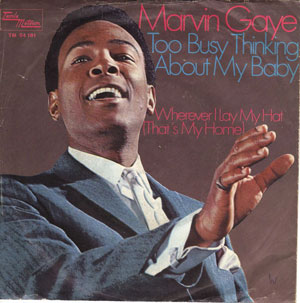
"Too Busy Thinking About My Baby" is a Motown song written by Norman Whitfield, Barrett Strong, and Janie Bradford. The song was first recorded by The Temptations as a track on their 1966 album Gettin' Ready. Eddie Kendricks sings lead on the recording, which was produced by Whitfield. Jimmy Ruffin also recorded a version with The Temptations providing background vocals in 1966. It remained unreleased until 1997.

"You've Really Got a Hold on Me" is a song written by Smokey Robinson, which became a 1962 Top 10 hit single for the Miracles. One of the Miracles' most covered tunes, this million-selling song received a 1998 Grammy Hall of Fame Award. It has also been selected as one of The Rock and Roll Hall of Fame's 500 Songs that Shaped Rock and Roll. It was recorded by the Beatles for their second album, With the Beatles (1963). Many other musicians also recorded versions.
"I Got a Woman" is a song co-written and recorded by American R&B and soul musician Ray Charles. Atlantic Records released the song as a single in December 1954, with "Come Back Baby" as the B-side. Both songs later appeared on the 1957 album Ray Charles.

"One Night" is a song written by Dave Bartholomew, Pearl King, and Anita Steinman. It was an R&B hit for Smiley Lewis in 1956, before being recorded with greater commercial success by Elvis Presley in 1957.

"When She Was My Girl" is a 1981 single released by American vocal group the Four Tops. The song, their first release off Casablanca Records, helped to return the former signature Motown act to the American pop Top 40 charts, peaking at number 11 on the US Billboard Hot 100, number 10 on the Cashbox chart, and reaching number one on the R&B charts.
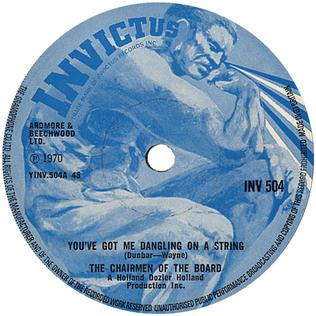
"(You've Got Me) Dangling on a String" is a 1970 soul music song by the Chairmen of the Board. The single reached No. 38 on the US Billboard Hot 100, No. 19 on the US Billboard R&B chart, and No. 5 on the UK Singles Chart. The song was written by Ronald Dunbar and Edythe Wayne.
"Your Old Standby" is a song written by Motown songwriters Smokey Robinson and Janie Bradford and released as a single by Motown star Mary Wells in 1963. The record marked her third top forty pop single to come out in 1963.

"Love on a Two-Way Street" is a soul ballad written by Sylvia Robinson, Lezli Valentine and Bert Keyes in 1968. The song was originally recorded by Lezli Valentine, an artist signed to All Platinum, the record label that Sylvia Robinson co-owned with her husband, Joe. The song was then recorded by The Moments, an R&B vocal group signed to All Platinum subsidiary Stang Records, as filler for their 1968 album Not on the Outside, But on the Inside, Strong!. Sylvia and Joe decided to release the song as a single in March 1970 and it went on to become one of the biggest R&B hits of that year, spending five weeks at number one on Billboard's Soul Singles chart and reaching number three on the Hot 100 chart. Billboard ranked the record as the No. 25 song of 1970. It was also certified gold by the RIAA for sales of one million copies.
"Baby " is a 1950s song written by Clyde Otis and Murray Stein.
"Funny How Time Slips Away" is a song written by Willie Nelson and first recorded by country singer Billy Walker. Walker's version was issued as single by Columbia Records in June 1961 and peaked at number 23 on the Hot C&W Sides chart.

"Take Good Care of Her" is a 1961 song written by Arthur Kent and Ed Warren and recorded by Adam Wade. It reached number twenty on the R&B charts and number seven on the Hot 100. In the song, the narrator speaks to the groom of his ex-girlfriend.
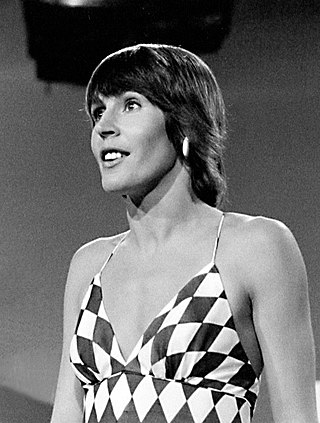
Australian-American singer Helen Reddy (1941–2020), often referred to as the "Queen of 70s Pop", recorded 18 studio albums, seven of which have achieved sales of 500,000 units in the US for which they were awarded Gold certification by the Recording Industry Association of America. One of those seven, I Am Woman, eventually went Platinum by reaching sales of one million copies, and her first compilation album, Helen Reddy's Greatest Hits, was awarded Double Platinum status in 1992 for hitting the two million sales mark. The respective US and Canadian album charts in Billboard and RPM magazine each had appearances by 10 of these LPs during the 1970s.
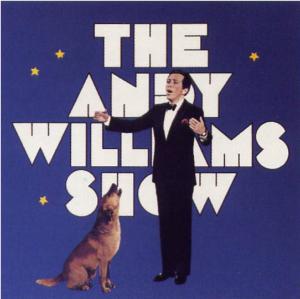
The Andy Williams Show is the twenty-sixth studio album by American pop singer Andy Williams that was released in the fall of 1970 by Columbia Records. In his review on AllMusic.com, William Ruhlmann writes that "The Andy Williams Show LP was not a soundtrack recording from the TV series, and it was not really a live album, although it gets categorized as such. What appears to be the case is that Columbia Records took a group of Williams' studio recordings, most of them made during the summer of 1970 and consisting of his versions of recent soft rock hits, and added a lot of canned applause along with some of the kind of musical interludes used to usher numbers on and off on the show, including bits of its "Moon River" theme music at the start and the finish."

Love Story is a compilation album by American pop singer Andy Williams that was released in the UK in July 1971 by the CBS Records division of Columbia and was mainly composed of tracks that had not been included on his studio LPs.

You've Got a Friend is the twenty-eighth studio album by American pop singer Andy Williams, released in August 1971 by Columbia Records. The album bears a striking resemblance to the Johnny Mathis album You've Got a Friend released that same month. Besides sharing their name, the two albums are both made up of covers of easy listening hits of the time, with 11 songs each, and the two albums have seven songs in common that are positioned in a similar order.

You've Got a Friend is an album by American pop singer Johnny Mathis that was released on August 11, 1971, by Columbia Records. The phrase "Today's Great Hits" can be found above the title on both sides of the record jacket as well as both sides of the LP label as if to emphasize that this is essentially an album covering songs that were recently on the charts. This was a common practice of many vocalists of the period, so much so in fact that fellow Columbia artist Andy Williams also released an album titled You've Got a Friend in August 1971 on which he coincidentally covers seven of the 11 tracks that Mathis recorded for this album.

"You Were Made for Me" is a song written by Eddie Brown and the song's performer, Irene Cara. It was the fourth and final single that originated on her 1983 LP What a Feelin' and the only ballad included on it. While Giorgio Moroder had written the music for most of the songs on the album, Cara is credited as the composer on "You Were Made for Me". Whereas the previous singles spawned dance remixes and did well on the pop and R&B charts, "You Were Made for Me" had its biggest success on the Adult Contemporary charts in the US and Canada. It was also her last chart hit in the US.
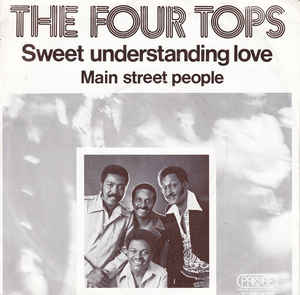
"Sweet Understanding Love" is a 1973 hit song recorded by the Four Tops for the ABC Records label. The song was the second of three single releases from their sixteenth studio album, Main Street People. The title track of the LP is on the B-side of the 45. "Sweet Understanding Love" was placed on their 1991 compilation album Ain't No Woman . It was also included on their album Anthology: 50th Anniversary (2004).
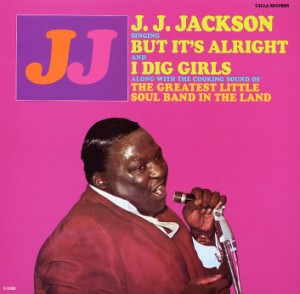
"But It's Alright" is a song co-written by J. J. Jackson and Pierre Tubbs that became a hit on the pop and soul charts in both 1966 and 1969.
References
- ↑ Whitburn, Joel (2004). Top R&B/Hip-Hop Singles: 1942-2004. Record Research. p. 574.
- ↑ Whitburn, Joel (2013). Joel Whitburn's Top Pop Singles, 14th Edition: 1955-2012. Record Research. p. 835.